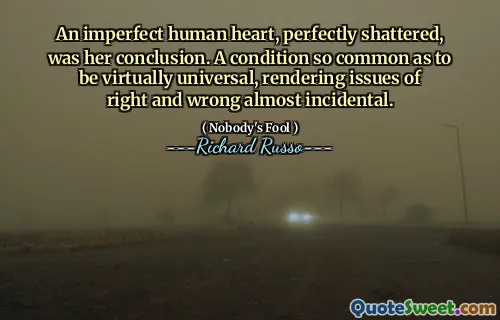No, Sully'd decided long ago to abstain from all but the most general forms of regret. He allowed himself the vague wish that things had turned out differently, without blaming himself that they hadn't, any more than he'd blamed himself when his 1-2-3 triple never ran like it should at least once. It didn't pay to second-guess every one of life's decisions, to pretend to wisdom about the past from the safety of the present, the way so many people did when they got older.
Sully has consciously chosen to let go of most regrets, accepting that not all outcomes can be controlled. He reflects on the possibility of different results without self-blame, illustrating his understanding that every decision comes with its uncertainties. Rather than dwelling on what could have been, he recognizes the futility in overthinking past choices, especially since they can often lead to false wisdom based on hindsight.
This mindset frees Sully from the burdens of regret, allowing him to move forward without the weight of disappointment. By understanding that life is a series of unpredictable events, he embraces the present without the encumbrance of constantly revisiting the past. His approach serves as a reminder that wisdom often comes from acceptance rather than second-guessing, a perspective that many struggle to maintain as they age.
